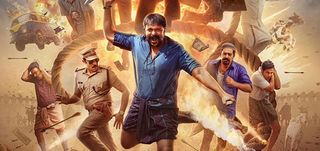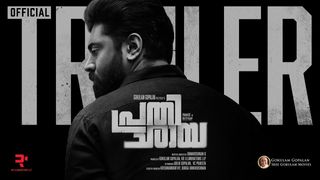Vilaapangalkkappauram Movie Review
It's an overly drawn-out concoction that Chandran offers us in his award winning film 'Vilaapangalkappuram'. There are too many concerns at hand for the filmmaker. As much as he is perturbed by the atrocities that drenched Godhra in a spray of blood, he is appalled by the horridness that a woman, or rather every woman faces on the underbelly of life.
Sahira (Priyanka) is a young Muslim girl on the run, after having been gang raped by a bunch of rioters in Godhra. Sometime soon she reaches Calicut, where she's nursed back to good health by Dr. Mary Varghese (Suhasini), before she's hounded by the media and men. When she finds herself cornered with few options in hand, the traumatized girl takes to the road yet again.
A bleeding Sahira staggers along the hustle-bustle of a busy street, with the traffic beside her moving along, unaware and perhaps undaunted by her plight. A remarkable scene that conveys a deafeningly silent lament that flows out of her dazed lips, this is the best moment in the film that attempts to bring out the brutality that's resident in man.
However, when the doctor asks a colleague if she has ever been 'manhandled', I was wondering where it was all leading to. She asserts that one would never understand the brutality associated with rape, unless one has gone through it. Along comes a lecher from hell, who attempts to rape the doctor on a night shift, in a brief flashback. And I was wondering if one has to be killed once to grasp the grisliness of murder.
There is also a minor digression in the form of Dr. Gopinath (Biju Menon) who travels all the way down from Jaisalmer, to work at the hospital for a few months. After a brief squabble with Mary, he leaves. Pardonable, when you think of him in any other film that could perhaps gloat on a romance that had gone sour in the past. But here, when all that matters is the ordeal of abuse, he is clearly out of place.
There are instances when the film appears rather sexist to me. Or even a bit brutal. Perhaps the intention is to bring out the gruesomeness that is invariably related to the ghastly event around which the film revolves. But I still believe that a film need not necessarily bank on the close-ups of the bruises on a rape victim's thighs to convey the horror of it all. Unless of course the intention is to bring out a Gaspar Noe kind of impact, where we saw Monica Belluci being raped for a never-ending nine minutes in Irreversible (2003).
Before the final curtain falls, arrives a point when the tussle between piety and malice comes to a standstill, if only for an instant. There is fire blazing out of Sahira's eyes when she asserts that there isn't a place on earth where a woman could find herself safe. For barely a split second, we feel as if it could be an inception for a change.
It's not surprising that the film evokes a response. It's bound to stir up a prattle all right. But it doesn't put forward a solid political statement unlike, say a Firaaq (2008) or Parzania (2005). There might be a few among you who might actually find something in it that would nibble at your heart. As for me, I would rather be with Chandran's Ponthanmada again.
OTHER REVIEWS



















